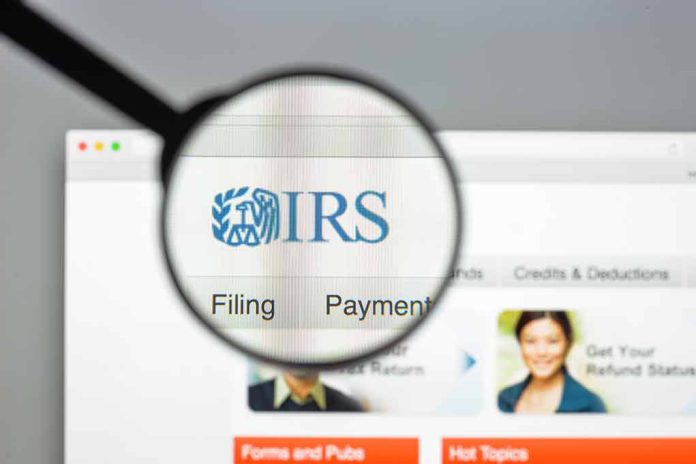
The IRS warns taxpayers of holiday season scams targeting personal information, urging vigilance to protect against financial fraud.
At a Glance
- IRS warns of increased scam activity during the holiday season
- Gift card scams are a common tactic used by fraudsters
- The IRS never requests payment via gift cards or wire transfers
- Taxpayers should be cautious of phishing emails and fake delivery alerts
- Victims of scams should report incidents to proper authorities
IRS Sounds Alarm on Holiday Season Scams
As the holiday season approaches, the Internal Revenue Service (IRS) is issuing a stark warning to taxpayers about the rising threat of scams designed to steal personal information. Fraudsters are becoming increasingly active during this festive period, taking advantage of increased consumer spending and the approaching tax season to deceive unsuspecting individuals.
IRS Commissioner Danny Werfel emphasized the gravity of the situation, stating, “The holiday shopping season and the fast-approaching tax season create a tempting target for identity thieves and scam artists.” This underscores the need for heightened awareness among taxpayers to protect their sensitive information.
Be cautious this holiday season – scammers are on the prowl for your personal information. This National #TaxSecurity Awareness Week, Dec. 2-6, #IRS and the Security Summit urge you to recognize and avoid these common scams and cyber threats: https://t.co/G7jdeP2dR7 pic.twitter.com/Lgg9yoITsk
— IRSnews (@IRSnews) December 1, 2024
Common Scam Tactics to Watch Out For
One of the most prevalent scams during this time involves gift cards. Scammers, often impersonating government officials or collection agencies, may send official-looking requests demanding payment for alleged tax debts using gift cards. It’s crucial to remember that the IRS never requests or accepts gift cards as payment for tax bills.
“Taxpayers should use extra caution this holiday season to protect their valuable personal and financial information, whether shopping online or clicking on links in email and other messages. A little extra caution can protect taxpayers’ confidential information and reduce the risk of identity theft in the upcoming filing season,” warns IRS Commissioner Danny Werfel.
Other common tactics include phishing emails, fraudulent phone calls, and deceptive social media activities. Scammers may pose as IRS agents, threatening taxpayers with fake penalties to create a sense of urgency. The IRS stresses that it will never “demand immediate payment using a specific payment method such as a gift card, prepaid debit card or wire transfer.”
Protecting Yourself from Holiday Scams
To safeguard against these threats, the IRS and Security Summit partners recommend several precautionary measures. When shopping online, use secure websites and avoid public Wi-Fi networks. Regularly update security software on your devices and use strong, unique passwords for each online account. Multi-factor authentication is also highly recommended for additional security.
Be particularly cautious of fake delivery alerts, which are often phishing attempts to steal personal information or download malware. Instead of clicking on suspicious links, use official shipping company tools or customer support to verify package status.
While you shop those early #BlackFriday deals, #IRS urges you to look out for phishing scams that put your info and next year’s tax refund at risk. Here’s how to shop smart while protecting your identity this holiday season https://t.co/Z6d4mWsZZA #TaxSecurity pic.twitter.com/wULzLtONuG
— IRSnews (@IRSnews) November 28, 2024
Reporting Scams and Seeking Help
If you fall victim to a scam, it’s important to report the incident promptly. The IRS advises reporting such cases to the Treasury Inspector General for Tax Administration or the Federal Trade Commission. For those suspecting identity theft, filing Form 14039 with the IRS is recommended.
Commissioner Werfel reminds us, “People need to be extra careful during the holidays and during tax season.” By staying vigilant and following these guidelines, taxpayers can protect themselves from financial harassment and ensure a worry-free transition into the upcoming tax season.
Sources:
- Taxpayers Beware: IRS Warns of Holiday Season Scams and Fraudsters
- Don’t let scammers ruin holiday gift card giving
- IRS warns of holiday scams, encourages protecting sensitive personal information as 9th annual National Tax Security Awareness Week starts









